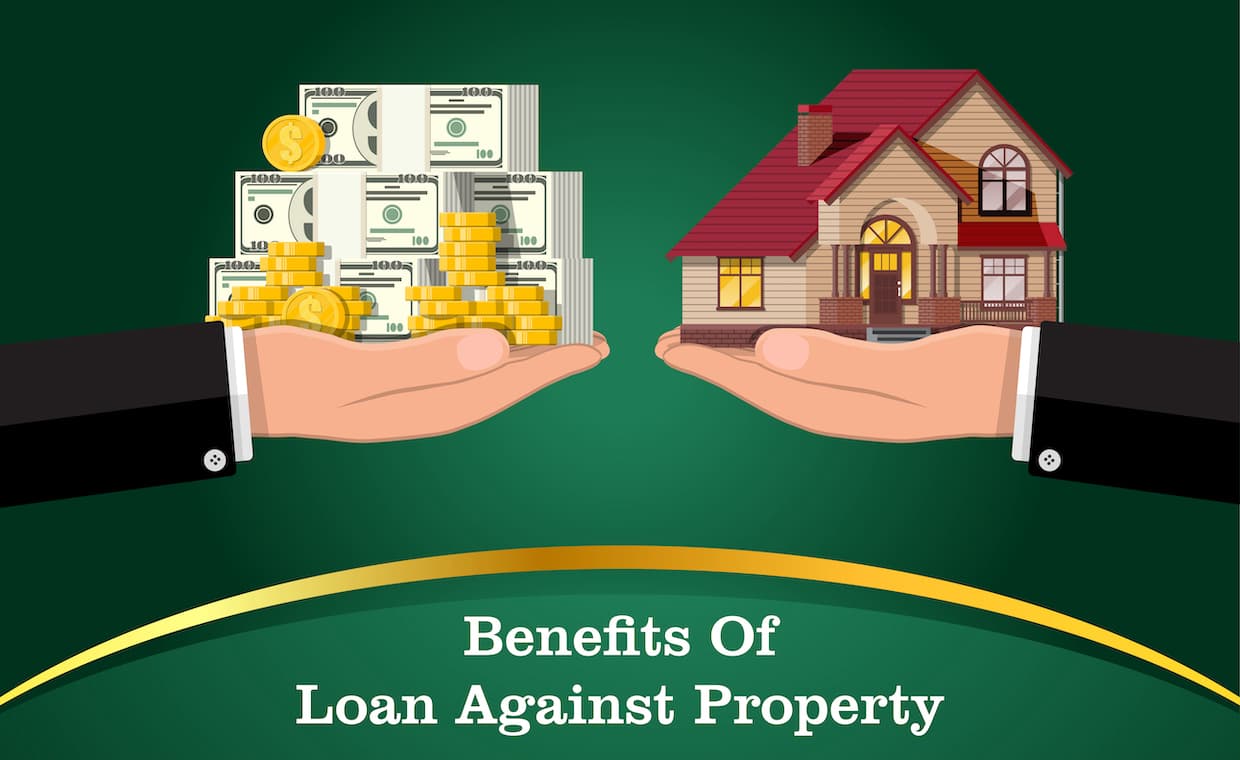
If you are looking for quick cash, your home, a plot of land or commercial property can be your best bet. Banks, housing finance companies, and non-banking financial companies allow you to unlock the value of your immovable assets, offering you easy loans at affordable rates. Loan against property (LAP) is a quick way to get hefty cash. Gharpedia brings you a guide on what is loan against or what is LAP loan, along with benefits of loan against property.
What Is Loan Against Property?

Loan against property means a credit that is secured against the value of your property. You have to pledge your property as a guarantee that you will repay the money you borrow in full and on time. You can get a loan up to 70 per cent of the value of your property. A loan against property is commonly used for big expenses such as starting or expanding a business, renovating a house, buying a new property, spending on marriage, children’s education, medical treatment, vacations, or simply clearing debts.
After knowing what is LAP loan, it would be better to know why to go for loan against property.
Why Going For A Loan Against Property Is A Good Idea?
A loan against property comes in handy when you want a large sum of money that cannot be obtained through personal loans, which are unsecured and hence come with stricter terms and conditions. Moreover, you get credit at a relatively cheaper rate. Compared with personal loans, which are unsecured, a loan against property is a cheaper option, and available on easy terms. You can use the credit obtained at a relatively low rate of interest as a tool to grow wealth. The loan against property has another advantage that a personal loan lacks – a long repayment period. Like home loans, a loan against property can have long tenures – up to 20 years. Another big advantage for the borrowers is that they can continue to occupy the property even after the loan has been availed.
Let’s further dive deep into the benefits of loan against property.
Benefits Of Loan Against Property
- Quick Processing: Being a secured loan, the loan against property is processed quickly, involving minimal paperwork. A loan against property can fetch you a higher amount than a personal loan and at the same time you can spend the money the way you want.

- NRIs Eligible: Both Indian residents and Non-Resident Indians are eligible for a loan against property
- Longer Repayment Period: You have the option of repaying your loan 20 years
- Lower interest rates: Interest rates for loan against property are lower than those offered to personal loan customers but a little higher than the borrowers of home loan get borrowers interest rates
- Lower EMIs: Compared to personal loan customers, the borrowers of loan against property get lower EMIs because the tenure of the loan can extend up to 20 years
- Extended Age Limit: You can take a loan against property for age up to 70 years at the time of maturity
- Balance Transfer Facility: You can transfer your loan against property to any other bank or financial institution offering better terms to you
- Foreclosure Charges: You are free to foreclose and prepay your loan without paying any charges if you had taken the loan at a floating rate of interest. In case of a fixed rate of interest, the prepayment charges are levied
The Types of Assets You Can Use for Loan Against Property
The following assets can be used to get loan against them:
- Self-owned residential property
- Self-owned and self-occupied residential property
- Self-owned but rented residential property
- Self-owned piece of land
- Self-owned commercial property
- Self-owned but rented commercial property
Before going for loan against property, it is advisable to consider the risk. A loan against property has several attractive features, but there is a reason for caution. You are borrowing after pledging your property as security or collateral, so you need to ensure you pay regularly and on time.
Conclusion:
With all the advantages, any individuals planning to go for a Loan Against Property must first evaluate their ability to repay the loan. In case of default, the lender reserves with him the power to dispose of the property to recover the loan. Hope this article helps you make a wise decision on whether or not to go for loan against property.
Before leaving make sure to check out our articles:
How To Get A Home Loan At Lowest Interest Rates?
NRI Home Loan Interest Rates: What You Need To Know
Author Bio
Devendra Bhandari






























